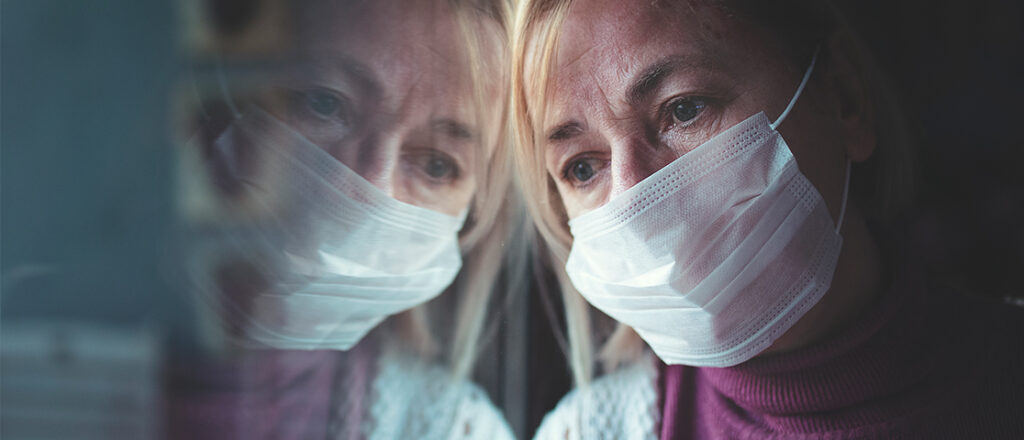Rebecca Gernon M.D.

With the current state of the world, physical health is top of mind for most people, as we make concentrated efforts to protect ourselves and those around us from the threat ofCOVID-19. But the pandemic has evolved past our physical well-being and is impacting our behavioral health. At BlueKC, we want you to know it’s OK not to be OK.
You are, quite literally, not alone. As humans, we favor states of knowing, rather than states of unknowing. With the world in a collective state of unknowing, it’s OK to feel and experience how scary and strange this feeling is.
Many of our most problematic behavioral health challenges are caused or made worse by social isolation. The practice of social distancing, one of the main techniques used to mitigate the spread of COVID-19, can compromise people’s underlying behavioral health challenges. Social distancing does not have to mean social isolation. Connection is one solution. Be sure to communicate with friends and loved ones on a regular basis and try out new or different forms of communication like a phone call, rather than a text, or a video chat with a large group of people. Just remember – you’re not alone.
In addition to staying connected, try to implement some of the following practices in your day-to-day life to help manage feelings of anxiety:
- Maintain your sense of humor. Humor is a healthy coping mechanism
- Practice stillness. Accept stillness as a part of this new normal and think of it as a new skill you have the chance to develop – being still and productive at the same time.
- Remember what Mr. Rogers said and look for the helpers. “When I was a boy and I would see scary things in the news, my mother would say to me, ‘Look for the helpers. You will always find people who are helping.”
- Recognize that there will be times of the day when you are more productive and times when you are less productive. Notice this pattern and use it to cultivate an effective schedule for yourself.
- Pick one national news source and one local news source to follow. Information-seeking behaviors seem to ease anxiety in the moment but can actually increase anxiety overall. This is especially true for health-related anxiety.
These are just a few of the ways you can work to manage your anxiety. It’s important to find coping mechanisms that work best for you and to make an effort to include them in your daily routine.
We recognize that for some individuals, their own homes are as stressful and scary as the world outside. If you are in this situation we urge you to take the necessary steps to assure your safety. We also know there are members of our community who are in recovery and for whom daily in-person connection with a support group is essential for healing. If this applies to you, we suggest joining an online meeting during this time to keep up with your recovery process.

